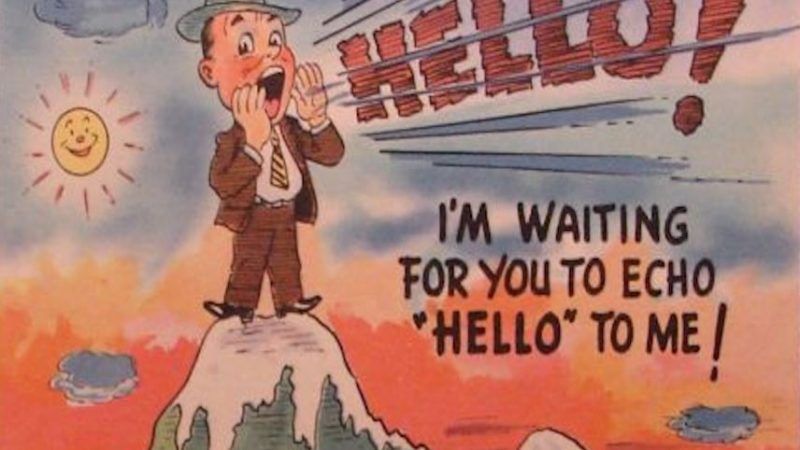When an Echo Chamber Gets Worked Up About Echo Chambers
Researchers cast more doubt on the "filter bubble" narrative.


The fear of filter bubbles has only grown stronger since Eli Pariser popularized the term at the beginning of the decade. Americans, he warned in his 2011 book The Filter Bubble, are "more and more enclosed in our own little bubbles. Democracy requires a reliance on shared facts; instead we're being offered parallel but separate universes." If you follow elite political discourse, you've probably heard several ever-more-worried versions of that idea.
Or at least I keep hearing them. It's possible that they just seem ubiquitous in my own particular bubble.
Pariser's portrait may be popular, but that doesn't mean it's well-grounded. Four academics—Andrew Guess, Benjamin Lyons, Brendan Nyhan, and Jason Reifler—have just published a skeptical take on the topic. Summarizing several studies, they argue that "the 'echo chambers' narrative captures, at most, the experience of a minority of the public." For example:
In controlled experiments, people do prefer congenial information over uncongenial information—a tendency that is especially prevalent in the domain of politics. People also tend to self-report a filtered media diet.
But studies that actually track people's behavior tell a different story. On television, media outlets with a significant partisan or ideological slant simply do not reach most of the U.S. population. The audience of Fox News and MSNBC peaks at 2 million to 3 million for well-known shows by hosts like Sean Hannity and Rachel Maddow in prime time. By comparison, about 24 million Americans tune into nightly network news broadcasts on NBC, ABC, and CBS and over 10 million viewers watch these networks' Sunday morning political talk shows. These audiences are in turn dwarfed by those for entertainment, where programs like The Big Bang Theory and Sunday Night Football attract as many as 20 million viewers.
The point here isn't that the network newscasts are themselves free of ideology (they aren't!) or that viewers are getting their news from The Big Bang Theory. It's that people aren't as politically self-segregated as the narrative has it, and that the most popular media-consumption tribes aren't organized around news or political commentary at all.
Guess & co. suggest that one reason the filter-bubble narrative is so popular in the press is because it's much more likely to be true of political writers and the people they cover. In the authors' words, "polarized media consumption is much more common among an important segment of the public—the most politically active, knowledgeable, and engaged. This group is disproportionately visible online and in public life." As a result, the idea that echo chambers are growing more common "has ironically been amplified and distorted in a kind of echo chamber effect." (Morris Fiorina made a similar argument in a recent Reason interview.)
Some of us have been beating this drum for a while. Back in 2011, for example, I panned Pariser's book for missing the ways the internet has reduced rather than intensified the filter-bubble effect. I'll wrap up with an excerpt from that:
Yes, our media consumption is increasingly personalized. But personalized does not mean isolated. Pariser imagines the Internet becoming a stagnant "city of ghettoes" where "connections and overlap between communities" disappear. But how many people belong to just one online community? A personalized Internet is an Internet geared toward your particular combination of interests, and therefore to your particular combination of human networks. If you're a Methodist Democrat in South Baltimore who watches birds, follows basketball, and loves Elvis, you might be in touch online with people who share your faith but not your politics, and vice versa; your neighborhood but not your hobby, and vice versa; your taste in sports but not in music, and vice versa. That isn't a city of ghettoes. It's a city of crossroads.
And while there may be many good reasons to hate Facebook, an insufficient diversity of views isn't one of them. One of the chief effects of using the site, after all, is to discover your friends' horrifying opinions.


Show Comments (78)